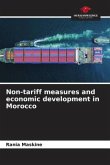This paper analyzes the economic, scientific and technological development policy of the Government of Minas Gerais between the years 2004 and 2015 from the neo-Schumpeterian theoretical perspective of economic development. It proposes an analysis of the adherence to neo-Schumpeterian ideas on the part of projects and activities contained in government planning, which were studied through the Minas Gerais Integrated Development Plan and the Pluriannual Government Action Plan. For this, a proposition is made of three attributes that must be observed in governmental planning directed towards economic, scientific, and technological development policies, which were named institutionality, entrepreneurship, and transversality. A methodology for the analysis is presented, by means of the constitution of the NSCH Index. The results obtained are analyzed in light of the literature dedicated to government planning in Brazil, revealing problems such as compartmentalization and budgeting, perceived from the distance between long-term planning and the actions that make up the public policies for economic, scientific and technological development.
Bitte wählen Sie Ihr Anliegen aus.
Rechnungen
Retourenschein anfordern
Bestellstatus
Storno








